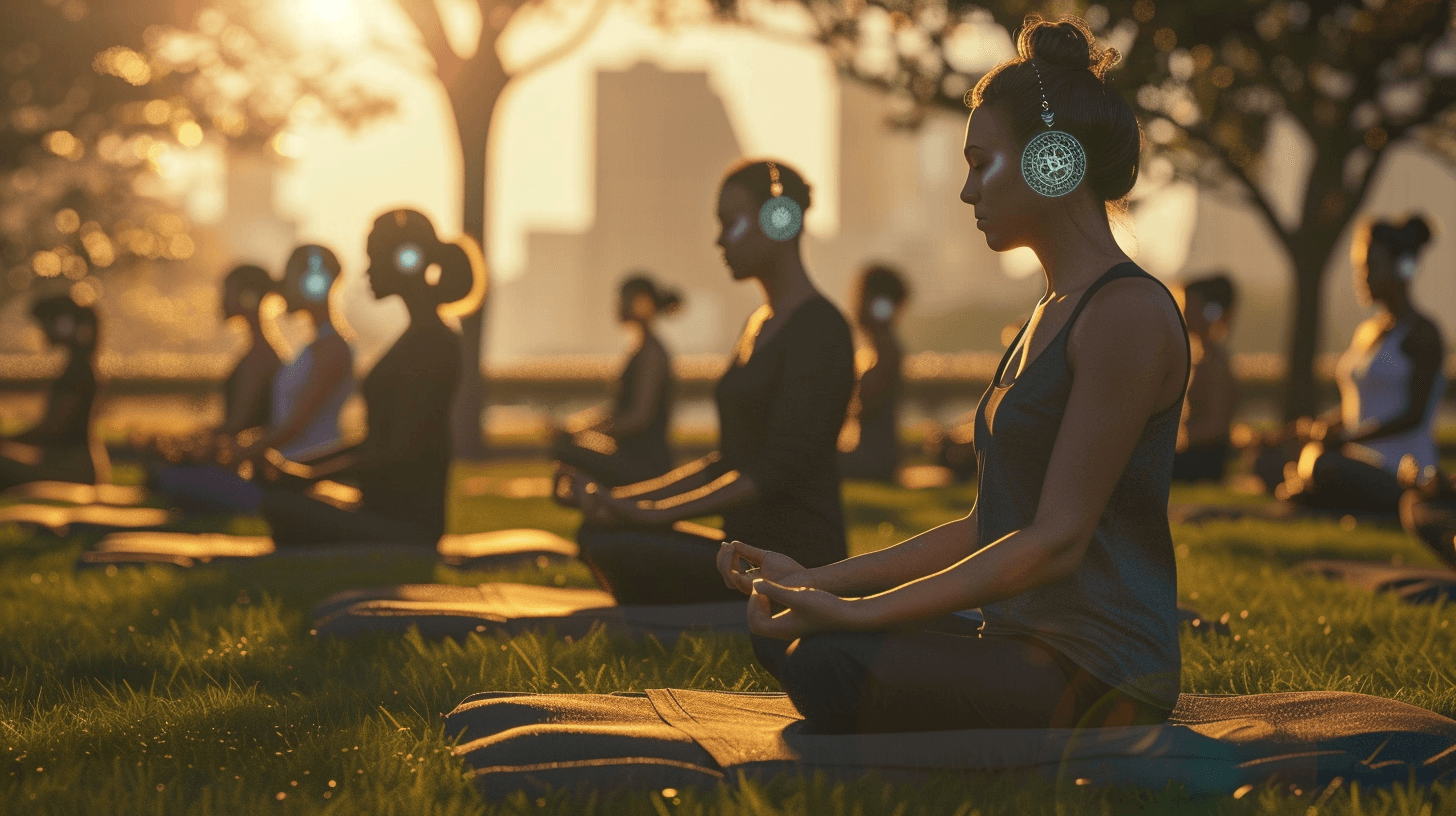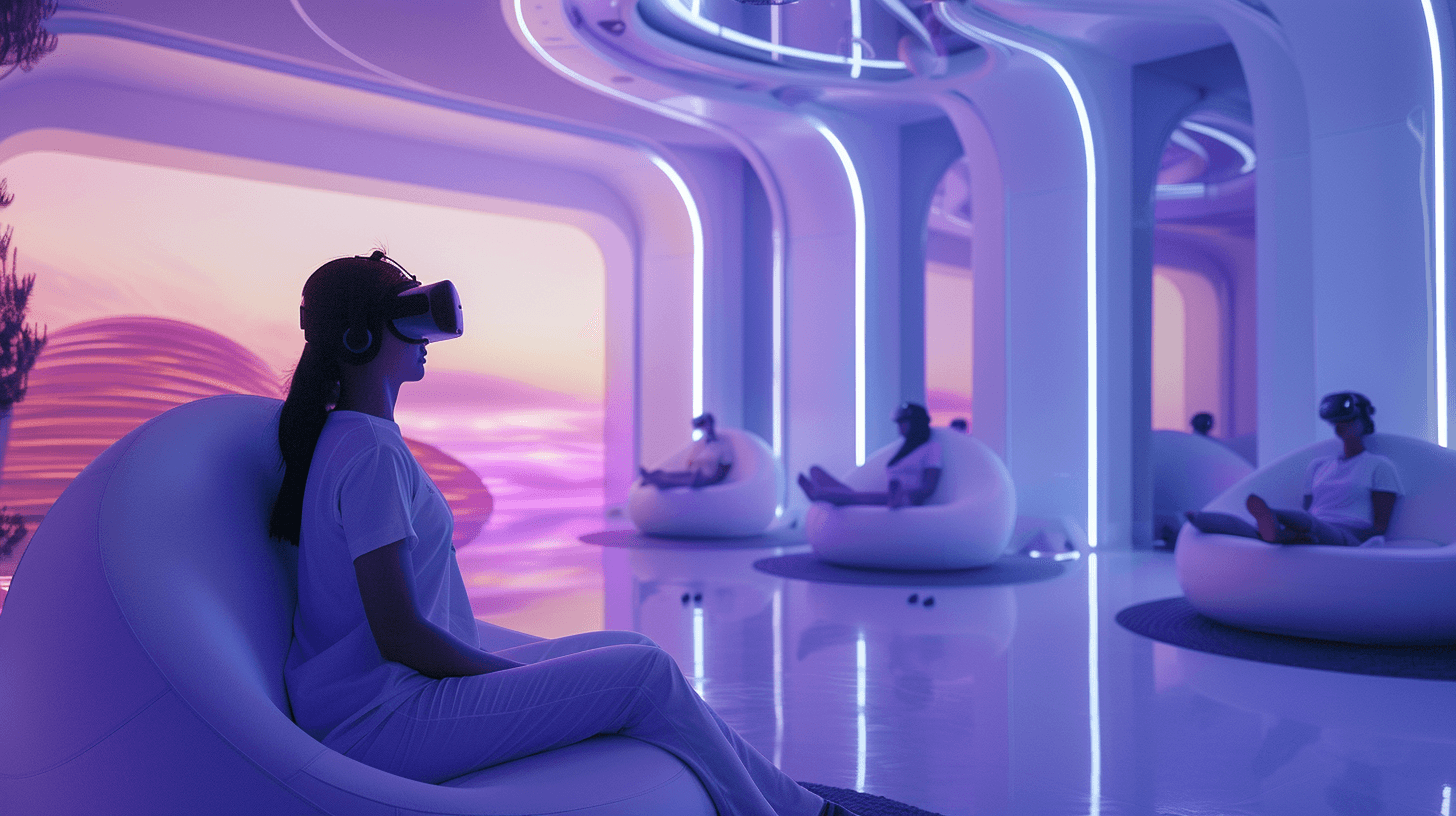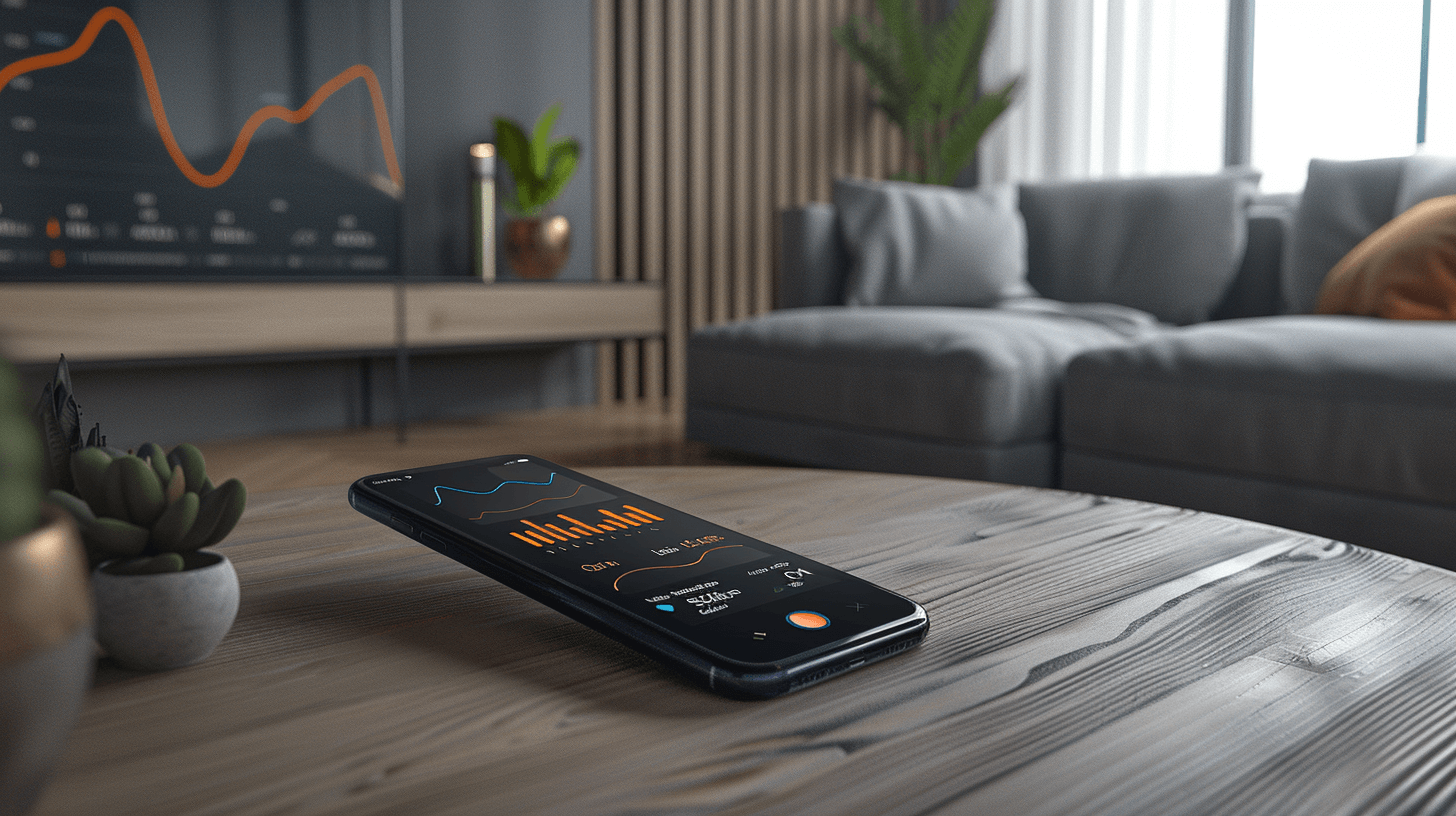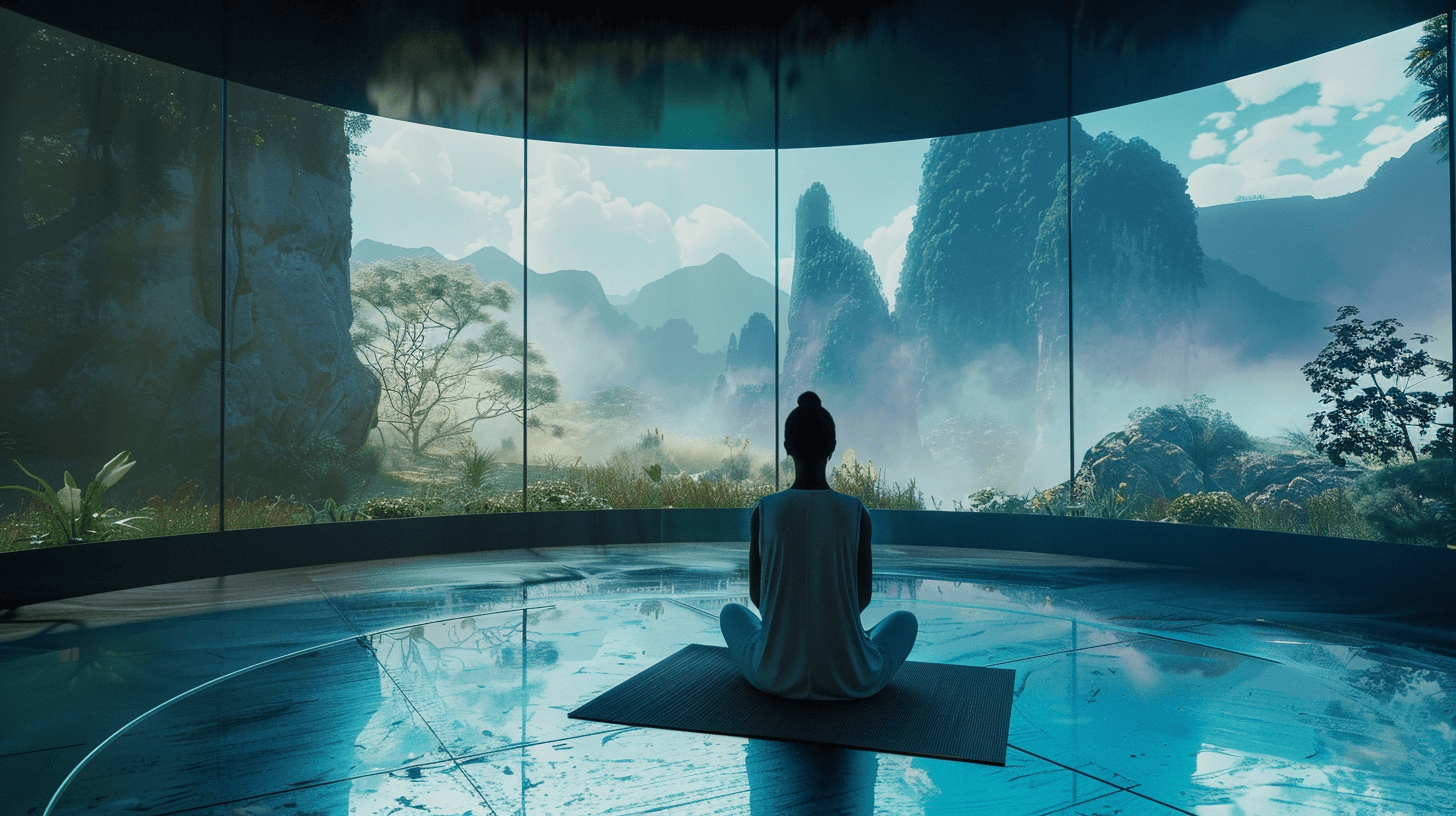Introduction

In recent years, a staggering 40% increase in the use of digital health tools for mental wellness has highlighted a significant shift in how we approach self-care. Among these innovations, artificial intelligence (AI) stands out for its profound impact on mental health outcomes, transforming meditation from a traditional practice into a highly personalized, technology-enhanced journey.
AI-powered meditation is not just a fleeting trend but a substantial evolution in the practice. It integrates cutting-edge technology to make meditation more accessible and tailored, offering a unique blend of tradition and innovation. These modern tools utilize sophisticated algorithms to adapt in real-time to your emotional state, providing guided meditation experiences that are deeply personal and much more effective. Whether you are a seasoned practitioner or a beginner, AI technology can offer insights into your mental patterns, helping you achieve tranquility and mindfulness with unprecedented precision.
The benefits of such advanced technology in meditation are vast. AI-powered apps and devices can analyze your feedback, adjust their guidance based on your progress, and help you understand the nuances of your own mind. This personalized approach ensures that meditation is no longer a one-size-fits-all solution but a personal journey tailored specifically to your needs and goals.
As we delve deeper into this article, you will discover how AI has not only democratized meditation but also enriched it, making it easier for everyone to find inner peace and mental clarity. Get ready to explore how embracing AI in your meditation practice can open up new paths to personal growth and well-being, making every session more insightful and effective.
Understanding Meditation and Its Importance

Meditation, a practice as ancient as history itself, has been a cornerstone of spiritual and emotional well-being across various cultures, from the mindfulness techniques of Buddhist monks to the meditative practices of Indian yogis. Initially intended to deepen understanding of the sacred and mystical forces of life, today, meditation has evolved into a vital tool for managing stress and improving personal wellness universally.
The benefits of regular meditation are profound and well-supported by scientific research. Mentally, it fosters greater clarity, enhanced focus, and better cognitive flexibility. Emotionally, it is linked to improved resilience, greater emotional intelligence, and decreased anxiety and depression levels. Physically, regular practitioners can experience reduced blood pressure, alleviated chronic pain, and improved sleep patterns. These benefits make meditation not just a practice but a transformative journey towards an enriched life.
However, beginners often encounter significant hurdles that can deter their progress. Many struggle to achieve deep meditation states essential for significant benefits, while others find maintaining a regular practice amidst busy schedules challenging. These obstacles are common and understandable but are also surmountable with the right tools and approaches.
Enter the age of AI-powered meditation guidance. AI technologies in meditation are designed to personalize the experience, adapting to the individual’s progress and needs. For those finding it difficult to maintain regularity, AI can send timely reminders or suggest the best times for meditation based on their schedule. For others struggling with achieving depth in their practice, AI can adjust the guidance in real-time, offering deeper insights into their current mental state and suggesting techniques to enhance focus and depth.
By embracing AI as a companion in your meditation journey, you open the door to a practice that adjusts to fit your personal growth and challenges. This innovative approach not only makes meditation more accessible but also significantly more effective, promising a richer, more fulfilling experience. As we continue to explore how AI is revolutionizing this ancient practice, let yourself be inspired by the potential of technology to enhance not just your meditation but your overall quality of life.
The Rise of AI in Wellness

Artificial Intelligence (AI) has dramatically transformed the landscape of health and wellness, embedding itself into tools that many of us use daily. Fitness trackers, for instance, have evolved from simple pedometers to sophisticated devices that can monitor sleep patterns, heart rate variability, and even predict stress levels by analyzing physiological data. Similarly, mental health bots like Woebot and Wysa offer round-the-clock emotional support, utilizing natural language processing to hold meaningful, therapeutic conversations that can guide users through tough moments.
In the realm of meditation, AI’s impact has been particularly profound. The technology enhances traditional practices by bringing advanced functionalities like pattern recognition and adaptability into the fold. For example, meditation apps now use AI to detect patterns in a user’s emotional state through their input and physiological data. This allows the apps to tailor meditation sessions in real-time, adapting the guidance to suit the user’s current mood and stress levels. Such personalization is crucial as it helps create a more engaging and effective meditation experience, which can be particularly beneficial for beginners who might struggle with generic meditation practices.
Moreover, numerous studies have underscored the effectiveness of AI-enhanced meditation. Research published in the “Journal of Medical Internet Research” found that participants using AI-powered meditation apps reported a significant decrease in stress after just two weeks, compared to those using standard meditation apps. This kind of evidence not only highlights the practical benefits of AI in meditation but also builds trust in these technologies, reassuring users that their time invested in AI-assisted practices is likely to yield positive outcomes.
As we continue to navigate the intersections of technology and personal wellness, it is clear that AI is not just a passive tool but a dynamic partner in our journey towards better health and deeper mindfulness. By leveraging the sophisticated capabilities of AI, we are not only enhancing our physical wellness but are also making significant strides in our mental and emotional health, crafting a holistic approach to wellness that is both modern and effective.
Top AI-Powered Meditation Apps

The landscape of meditation has been significantly enhanced by AI technology, differentiating modern apps from traditional methods in several key ways. Adaptability stands out as a cornerstone feature, allowing AI-powered meditation apps to dynamically adjust sessions based on real-time user feedback. This could mean altering the session’s length, style, or focus based on how the user’s day is going or their current stress levels. Feedback mechanisms are equally vital, providing users with instant insights into the effectiveness of their meditation sessions through metrics like heart rate, breathing patterns, and even emotional recognition through voice tone analysis. Personalization is perhaps the most transformative feature, with apps recommending specific meditation modules based on the user’s mood, time of day, or personal goals.
Detailed Reviews of Leading AI-Powered Meditation Apps
1. MindEase: This app uses machine learning to tailor meditation experiences, adjusting scenarios based on the emotional state detected through the user’s input. Recognized with the “Innovator in Wellness Technology Award 2023,” MindEase offers a variety of guided meditations that evolve as the user’s meditation journey progresses.
2. ZenAI: ZenAI stands out for its use of voice recognition to determine stress levels, offering guided meditations specifically designed to counteract the user’s current stressors. Featured in “Tech Health Today” for its groundbreaking approach, the app provides detailed feedback post-session, allowing users to track their progress over time.
3. SereneMind: With its focus on biometric feedback, SereneMind integrates with wearable devices to monitor physiological responses during meditation. It offers a personalized dashboard that users love for its detailed insights and suggestions for improving meditation practices.
4. CalmTech AI: Notable for its adaptability, CalmTech AI uses behavioral algorithms to learn from each session, enhancing the user experience continually. It has been awarded for its user-friendly interface and is highly rated for its engaging and effective meditation sessions.
AI-Enhanced Mindfulness: 10-Minute Journey to Presence
Integrating AI Meditation into Daily Life

Integrating AI-powered meditation apps into your daily routine can be a seamless and rewarding endeavor if approached with intention and practicality. To start, consider weaving meditation into parts of your day that naturally lend themselves to pause and reflection. Mornings might offer a serene backdrop for setting intentions and grounding yourself before the day’s hustle. Conversely, winding down in the evening with a meditation session can help soothe the mind and prepare your body for restful sleep.
For consistent practice, leverage the technological capabilities of these apps. Most come equipped with features that allow you to set reminders or schedule meditation sessions ahead of time. This can be particularly useful for maintaining regularity without feeling like it’s just another task on your to-do list. Placing these reminders at strategic times, such as during your midday break or right after your workday, can make meditation a natural part of your daily rhythm rather than an interruption.
When setting expectations for AI-powered meditation guidance, it’s important to understand that the benefits, such as improved focus, reduced stress, and enhanced sleep quality, build over time. These outcomes are often subtle at first and require consistent practice to become more evident. While AI can tailor the meditation experience to your needs and progress, the key to lasting benefits lies in regular engagement with the practice. Patience and persistence are crucial; the more you invest in meditation, the greater the returns in overall well-being.
However, it’s essential to avoid common pitfalls such as over-reliance on technology. Meditation is fundamentally about fostering a deeper connection with oneself. While AI tools provide guidance and insights, they are not a substitute for the intrinsic work of meditation, which involves developing mindfulness and self-awareness. To find balance, use AI as a complementary tool—one that enhances but does not overshadow the fundamental principles of meditation. For instance, while you might follow guided sessions from an app, also make time for unguided meditation that challenges you to apply and deepen your practice independently.
By adopting AI meditation tools thoughtfully, you can enhance your meditation practice and enjoy the manifold benefits of mindfulness. Remember, these tools are designed to support your journey, not define it. With the right approach, AI can become a valuable ally in your pursuit of mental wellness and a more mindful life.
Future Trends in AI Meditation

As we venture further into the 21st century, the integration of AI in wellness technologies, especially meditation, is poised for revolutionary developments. Imagine engaging in a meditation session where augmented reality (AR) and virtual reality (VR) transport you to a serene forest or a tranquil beach, enhancing the sensory experience and deepening your meditative state. These emerging technologies promise to make meditation sessions more immersive and interactive, potentially increasing their effectiveness.
Further advancements in biometric feedback systems are on the horizon, promising to deliver even deeper insights into our physiological responses during meditation. These systems could soon track brain wave patterns, heart coherence, and even subtle changes in body temperature, providing real-time feedback that helps users optimize their practice.
Insights from industry leaders and innovators paint an exciting future for AI in meditation. Tech developers and neuroscientists, like Dr. Emily Stone of NeuroWell Labs, predict that AI will become even more intuitive, with algorithms designed to adapt to individual emotional needs in real-time, making meditation a truly personalized experience. Dr. Stone suggests, “The next generation of AI meditation tools could identify stress levels before the user is even aware of them, offering preemptive meditation sessions tailored to ward off stress.”
The potential for these advancements to enhance individual wellness and societal health is immense. As AI-powered meditation tools become more widespread and sophisticated, they could play a crucial role in reducing workplace stress, enhancing productivity, and improving overall public health. The implications for healthcare, where these tools could be integrated into therapeutic regimes to treat conditions like anxiety and depression, are particularly promising.
This evolving landscape invites you to envision a future where meditation and wellness are not just supported by technology but are fundamentally transformed by it. As these tools become more accessible and personalized, they promise new avenues for achieving tranquility and mental clarity, making the benefits of meditation a reachable goal for everyone.
Conclusion

As we have explored throughout this article, AI-powered meditation offers transformative benefits that can significantly enhance the personal meditation experience. By adapting to individual emotional and physiological needs, AI tools bring a level of personalization that traditional methods cannot match. The integration of these advanced technologies into daily routines has been shown to not only make meditation more accessible but also more effective, leading to improved mental health outcomes including reduced stress and enhanced emotional well-being.
Now, I encourage you to take the first step towards enhancing your mental wellness by exploring one of the AI meditation apps we’ve discussed. Whether you are a novice seeking guidance or an experienced practitioner looking to deepen your practice, these tools are designed to meet you where you are and help you grow from there.
To leave you with a final thought, consider this quote from Dr. Lisa Feldman, a noted psychologist and AI researcher: “In the interplay between technology and human consciousness, AI has the potential to not just replicate but to elevate our meditation experience, offering paths to tranquility that were previously unimaginable.” This statement captures the essence of what AI can bring to our pursuit of inner peace and mental clarity.
Embrace these tools as partners in your journey towards a more mindful and fulfilled life. Let AI be your ally in unlocking the profound benefits of meditation, and see for yourself how much deeper and more rewarding your practice can become.







